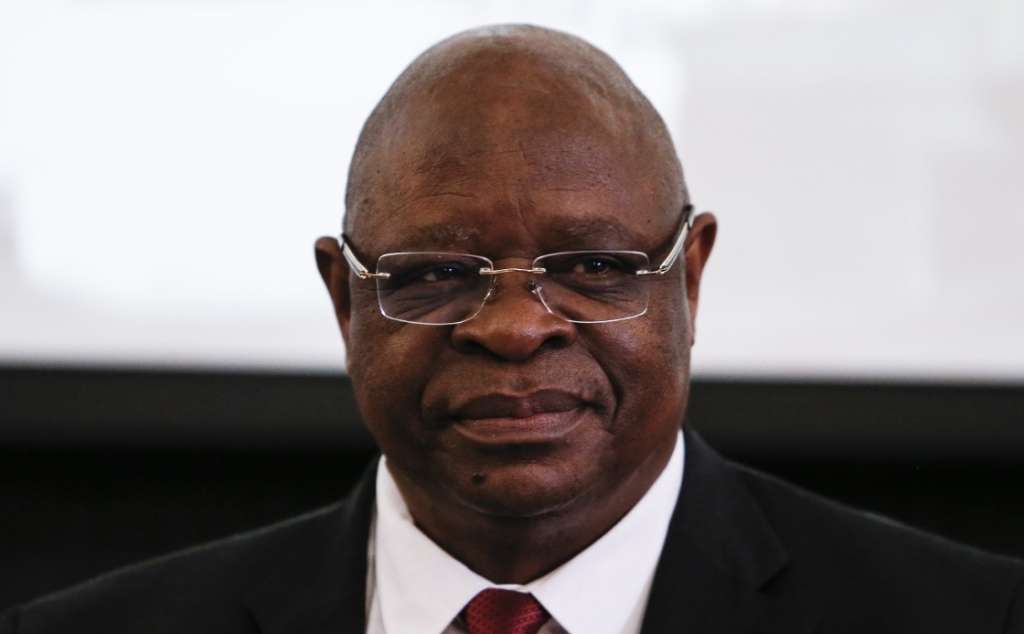
Image: BusinessLIVE
After the JSC proposes Mandisa Maya, the President asserts his prerogative to appoint the chief justice.
Raymond Zondo has been chosen as the new Chief Justice by President Cyril Ramaphosa.
Ramaphosa overruled the Judicial Service Commission’s (JSC) recommendation, which he previously stated had exceeded its mandate in proposing Supreme Court of Appeal president Mandisa Maya. He stated that the committee was only needed to advise him on the appropriateness of four candidates: Maya, Mbuyiseli Madlanga, Dunston Mlambo, and Zondo.
Ramaphosa has nominated Maya for the job of deputy chief justice, which will become vacant following Zondo’s nomination as the country’s top judge. According to a statement released by the presidency on Thursday, Maya’s nomination would be subject to the constitutional consultation procedure. Zondo will begin his tenure on April 1.
The president is mandated by the constitution to choose the chief justice after consulting with the JSC and political parties represented in the National Assembly.
The JSC, which advises the government on topics relating to the judiciary and administration of justice, has suffered a credibility crisis in recent hearings after lawmakers — primarily from the EFF — turned them into spectacles by asking justices improper and irrelevant questions.
Ramaphosa recently maintained to journalists that he is not bound by the JSC and said in a statement on Thursday that he has “every faith” that Zondo will “perform a commendable job in this role.”
Zondo’s appointment comes as the panel of inquiry into state capture, which he presided over, nears completion. He faced political criticism from a variety of quarters, most notably former President Jacob Zuma and others involved in massive stealing and corruption during the Zuma administration.
The probe revealed the depth of capture of government and state-owned firms such as Eskom, SAA, and Transnet, which were hollowed out by the Gupta family and their friends through money-laundering. Zuma and his son’s business associates were pals of the family.
Additionally, the inquiry was critical of contemporary ANC leaders who were implicated in corruption and suspected of accepting payments from facilities company Bosasa.
Zondo’s final report is scheduled to be released by the end of April. Ramaphosa will then spend several months deliberating on the suggestions and reporting to parliament on the course of action he intends to follow. The investigation has cost over R1 billion and has been extended multiple times.
The JSC process that resulted in Maya’s appointment was hampered by inappropriate interviews with several of the four justices who had been suggested by a panel of experts formed by Ramaphosa to recommend a replacement for former Chief Justice Mogoeng Mogoeng.
The process of choosing Zondo as chief justice took more than six months.
Ramaphosa requested nominations for the job in September and created a team chaired by judge Navanethem Pillay to review public nominations and shortlist nominees. Madlanga, Maya, Mlambo, and Zondo were chosen by Ramaphosa, and their fitness was examined by the JSC.
Ramaphosa stated in his address that the chief justice position “carries a great deal of responsibility in our democracy.”
“As head of the judiciary, the chief justice is a defender of our constitution and the legislation passed by the people’s freely elected representatives.”
Zondo was appointed to the labour court as a judge in 1997 and served as president of the labour and labor appeals courts from 2000 to 2010. Since 2012, he has served as a judge on the Constitutional Court, and was appointed deputy chief justice in 2017.
